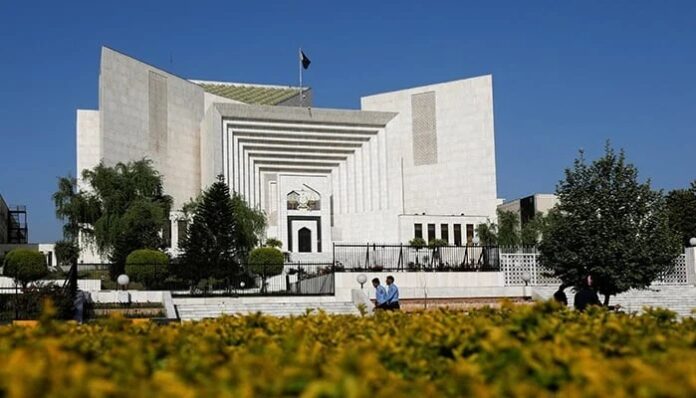Islamabad: A constitution bench of the Supreme Court of Pakistan on Wednesday asked why the Army Act was not applied in cases related to the 2014 Army Public School (APS) attack.
A constitutional bench headed by Justice Aminuddin Khan heard an intra-court appeal challenging the decision to prosecute civilians in military courts. Khawaja Haris appeared on behalf of the Ministry of Defense during the hearing.
During the hearing, Justice Jamal Khan Mandukhel questioned the need to amend the constitution to allow military trials for terrorism, pointing to the existing nexus between civilian crimes and military courts.
He also asked why such trials were not conducted earlier despite the existence of the Army Act.
Defense Ministry lawyer Khawaja Haris argued that the nature of the crime determines whether the trial should be in a civilian court or a military court.
He asserted that if any civilian crime is connected with the armed forces, it falls under the jurisdiction of military courts.
Justice Mandukhel, however, suggested that the intent of the offender should be considered to determine whether the offense is against the national interest.
Khawaja Haris clarified that military courts can hear terrorist acts linked to religious or terrorist groups under the Army Act with or without constitutional amendments.
Justice Mandukhel inquired whether important cases like the 2014 Army Public School (APS) attack should be dealt with under the existing legal framework.
Khawaja Haris said that the APS attack was related to the army but was not tried directly in the military courts.
He said that the constitutional amendment covers additional offenses beyond military duties.
Justice Muhammad Ali Mazhar added that the court’s focus is not on the nature of specific crimes but on reviewing the constitutionality of the law.
Khawaja Haris argued that if the Supreme Court upholds Sections 21D and 2D2 of the Army Act, the challenges to the military courts should be dismissed.
The bench also referred to the 21st Constitutional Amendment, which allowed military trials for terrorism cases after the APS attack.
Justice Naeem Akhtar Afghan remarked that the amendment was the subject of parliamentary debate and applied judicial reasoning, while Justice Hasan Azhar Rizvi noted the emotional context in which the amendment was approved.
Khawaja Haris defended the role of Parliament in passing the amendment and acknowledged the important role of former Senate Chairman in its passage.
The constitution bench then adjourned the hearing till Thursday (yesterday).










